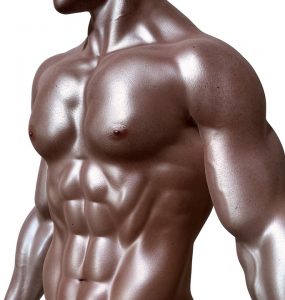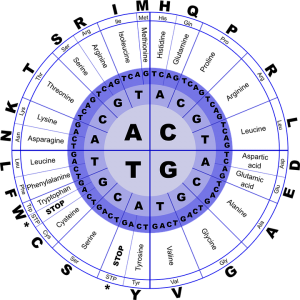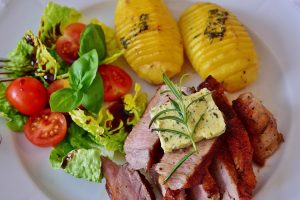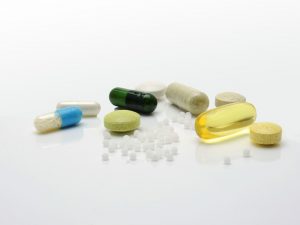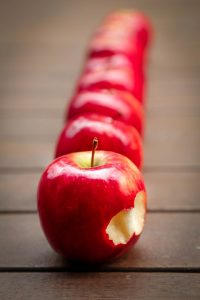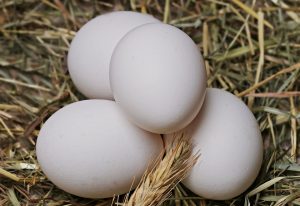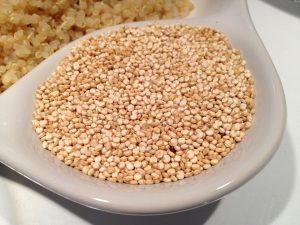Ask any guy who’s managed to put some quality muscle on his body, and he’ll tell you that the most important part of the muscle equation is what you eat. For many new guys, that is a hard concept to get their head around. After all, training in the gym is the glamor part of the equation – the public part. That may be true, but the reality of the science of muscle building is what dictates results. And that science tells us that unless we properly feed the muscle cell, it will never grow.
Why Muscle Building Nutrition is Vital
You don’t grow in the gym. In fact, you do the opposite. The whole goal of working out is to break down the muscle cell. The end goal is to build it back up again, bigger than it was before.
How?
Through smart nutrition. If you don’t give the muscle the nutrients that it needs when it needs it, you will be unable to rebuild the cell. All that your hard training will do is to put you further and further into a catabolic (muscle wasting) state.
Protein -The Most Important Nutrient
You probably know that protein is essential to muscle building. With all the over the top promotion of protein supplements it’s pretty hard to avoid. Protein is made up of amino acids, which is the material that every cell in your body is made from.
When you stress your muscle cells as a result of your workout, small tears occur in the muscle fiber. To repair them, the body requires amino acids. Without them, no muscle building can occur.
To provide your muscle cells with an ongoing supply of amino acids, you need to be taking in protein on a regular basis. When you have such a constant flow of protein coming into your system, you are said to be in an anabolic state. As a bodybuilder, this should always be your goal.
To get, and stay, in an anabolic state, you should plan to consume some form of protein every three hours throughout the course of your day. You should also be taking in one gram of protein for every pound of your bodyweight.
That means that if you are a guy who weighs 160 pounds, you need to be taking in 160 grams of protein every day. But you don’t want to consume it all at once. Rather, you want to spread it out over the course of your day. If you have your first meal at 7am, you should be eating protein at 7am, 10am, 1pm, 4pm and 7 pm. That’s 5 meals. Now, if we divide the 160 gram daily total by 5, we know that we should be consuming about 33 gram of protein at each of your 5 meals.
So, where should your protein come from?
Hard boiled eggs are a cheap source of very high quality protein. They contain about 7 grams of protein each. So, if you have 4 for breakfast, along with a glass of milk, you’ll be hitting your protein numbers easily.
Other great forms of protein are fish, chicken, and beef. You should also make use of protein shakes. Whey protein provides the fastest acting form of protein on the market. Look for a protein powder that delivers around 30 grams of whey protein per serving, and that contains no additives or fillers. You can take a shake up to two times per day to help you to fill your protein quota.
The Other Macronutrients
While protein is by far the most important of the three macronutrients, you also need carbohydrates and fat in order to build muscle. Carbohydrates are your body’s preferred energy source. Despite the fact that they have been demonized in the media lately, carbs are essential for providing you with energy you need to train at the intensity you need to bring it in the gym.
Your preferred carb sources should be such starchy foods such as yams and sweet potatoes. They will provide you with the long lasting energy to fuel you through your training sessions. Make rice a staple also, going for brown or jasmine as opposed to white rice. Green vegetables and fresh fruit should also make up your carb complement.
You also need to be taking in a good supply of healthy fats. These fats are actually important ingredients in the muscle building process. Short chain essential fatty acids and omega 9 are especially important. They can be found in foods like avocado, almonds and coconut oil.
Also important to your muscle building endeavors is Omega 3. A great source of omega 3 is fatty fish such as salmon, herring and tuna.
So, now that you know what foods you should eating, let’s take a look at the ideal muscle building macronutrient ratio. You will come across all sorts of numbers in this regard, but the ratio that has been proven in the trenches to be the most advantageous is the following:
50% Carbohydrate / 30% Protein / 20% Fat
What About the Number of Calories?
Having identified what we should be eating to pack on muscle mass, we now need to address how much of it we need. Of course, we’ve already identified that we need to take in a gram of protein for every pound of our body weight. But what about the total number of calories that we consume each day?
In order to work out how many calories you need to eat each day to gain muscle, we first need to calculate your Daily Caloric Requirement (DCR). This is simply a measure of how much food, as measured in calories, you need to consume each day in order to sustain you as you are. A simple, and reasonably accurate way, to do this is simply to multiply your bodyweight by a factor based on your daily energy expenditure.
If you lead a relatively sedentary lifestyle, multiply your bodyweight in pounds by 10. If you are active throughout the day, multiply by 15. The fact that you are training intensely to build muscle, will probably put you in the active category.
If we go back to our 165 pound guy, we can now multiply his bodyweight by 15 to get a Daily Caloric Requirement of 2475 calories. That’s how many calories he needs to take in each day to stay the same. Of course, staying the same is the last thing that he wants. His goal is to build muscle. So, he wants to take in more calories.
To provide the calories needed to build muscle over and above your daily maintenance needs, you need to add 500 calories per day to your calorie total. That would see our 165 pound guy eating 2975 calories per day, which we can round to 3000.
We have already established that you need to be eating every 3 waking hours. For most of us, that works out to 5 meals per day. Each meal should contain about the same number of calories. So, our 165 pound guy will be taking in 600 calories per meal (3000 calories divided by 5).
The macronutrient breakdown of each meal will be 50% carbohydrate, 30% protein, and 20% fat.
What About Supplements?
Supplements are exactly what they claim to be – supplemental to sound nutrition. Do not even think of using them until you’ve nailed the nutritional guidelines presented in the preceding parts of this article. In fact, we’ve already introduced the most important supplement to you – protein powder. This is the first addition to whole food that you should purchase in order to assist your muscle building endeavors.
The second most important supplement is creatine. Creatine is a hormone produced in small quantities by the body. When taken in supplemental form, it proves to be a very effective way to enhance your anaerobic endurance. The main form of energy in your muscle cells is adenosine triphosphate (ATP). When you exercise against resistance, ATP is used up to become adenosine diphosphate (ADP). Creatine has the ability to replace the missing phosphate molecule and turn it back into ATP. The net result is that you are able to push out more reps with the weight that you’re using!
The third and final supplement that we recommend is Branch Chain Amino Acids (BCAA’s). BCAA’s are made up of the essential amino acids leucine, isoleucine and valine. These three are key stimulators of protein synthesis. They are also unique because they can be used by the muscle cell as a form of energy. They will help you to stay in an anabolic state and will also ward off fatigue while you are working out.
7 Weight Gain Super Foods
Weight Gain Food No.1: Apples
Apples will not only keep the doctor away – they will also keep the fat away while making you bigger and stronger. Apples contain polyphenols which increase muscle strength and endurance. They also increase the amount of fat the body burns.
Add apples to your plan as an in between meal snack
Weight Gain Food No.2: Beef
Beef is a great weight gain food because of its high protein, cholesterol and saturated fat count, all of which help increase testosterone levels. Choose organic cuts that contain more CLA (conjugated linoleic acid) that helps you lose more body fat.
Add beef to your diet as the basis of at 3 least dinner meals per week.
Weight Gain Food No.3: Beetroot
Beetroot may not come readily to mind when you think of muscle food. Yet it contains two compounds, betaine and nitrates, which make it a smart choice. Betaine has been shown to bolster muscular strength and endurance. Nitrates contribute to the production of nitric oxide, which relaxes blood vessels to help wide them and allow more blood to flow through. This allows more amino acids to get into the muscle cell.
Add beetroot to your diet to gain weight by serving it on the side with the dinner meal.
Weight Gain Food No. 4: Eggs
It’s not just the protein that makes the egg one of the perfect foods for gaining weight. The cholesterol in the yolk has positive benefits as well. It maintains muscle cell membrane and keeps testosterone levels high. Research shows that eating whole eggs provides a boost in both lean mass and strength.
Add eggs to your diet by including three whole eggs at one meal every day.
Weight Gain Food No. 5: Blueberries
Free radicals will damage muscle cells and side-track your lifting progress. They need to be destroyed. No fruit or vegetable is better at doing that than blueberries. They are loaded with anthocyanadin, a potent anti-oxidant phytochemical that zaps free radicals while also boosting brain function.
Add blueberries to your diet by eating a serving 1-2 hours before your workout.
Weight Gain Food No. 6: Quinoa
Quinoa is superior to most other whole grains because it contains lysine. This is one of the nine essential amino acids you must get from your diet. Quinoa has enough lysine in it to be considered a complete protein. Research has also shown that eating quinoa will increase levels of insulin like growth factor-1, which is critical for muscle growth.
Add quinoa to your diet by having it as a side dish with your main meat source.
Weight Gain Food No. 7: Salmon
The fact that salmon is loaded with relatively quick digesting protein makes it a great muscle food. Salmon is also a rich source of essential omega-3 fatty acids EPA and DHA. This will result in greater muscle strength, enhanced insulin sensitivity, which leads to greater protein uptake by the muscle cells. These fats are also readily burned for fuel. Omega-3’ also enhance muscle and joint recovery, thus leading to more growth and helping to keep you injury free so that you can continue to train hard.
Add salmon to your diet by eating it twice per week as a main meal.
Conclusion
You now know precisely what, when and how much food and supplementation to take in order to pack on muscle mass. Your job now is to follow through on what you know. Do tough workouts that help you build muscle girth. Stay focused, be consistent, hit your daily calorie and protein numbers, do your job in the gym and get at least 7 hours of quality sleep each night, and your body will have no choice but to pack on muscle!
Fortunately, it is possible to put together a diet to gain weight that is built around a few whole, natural foods that, collectively, provide all of the ingredients to help you gain the right kind of weight; lean muscle. Incorporate our guidelines into your diet, add a healthy dose of intense training and watch the muscles add up.
